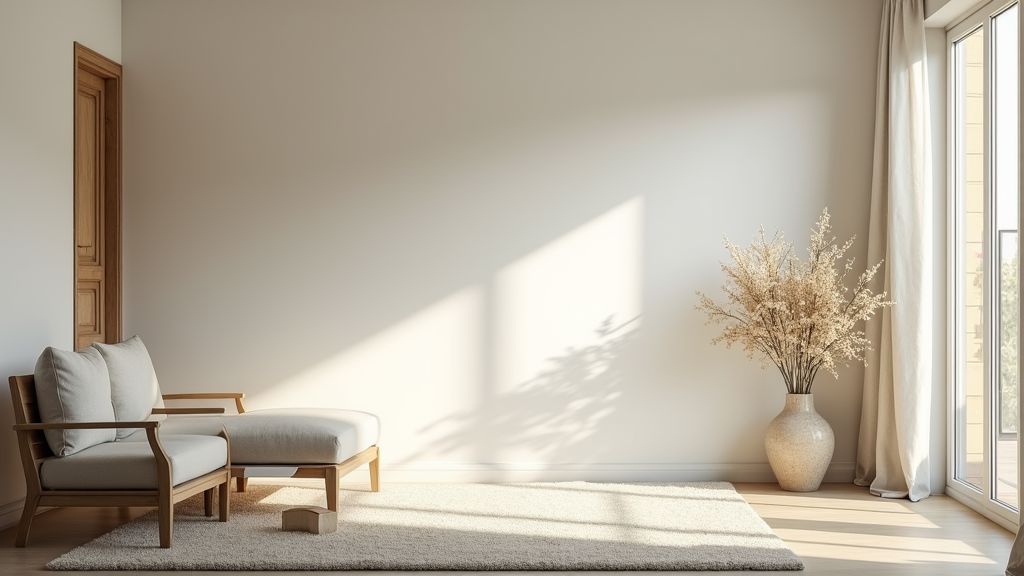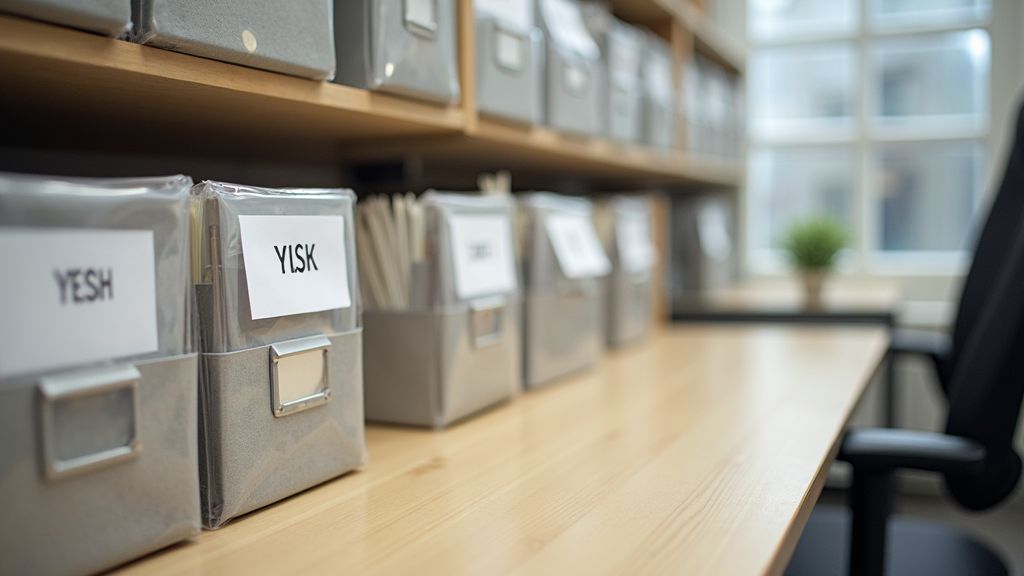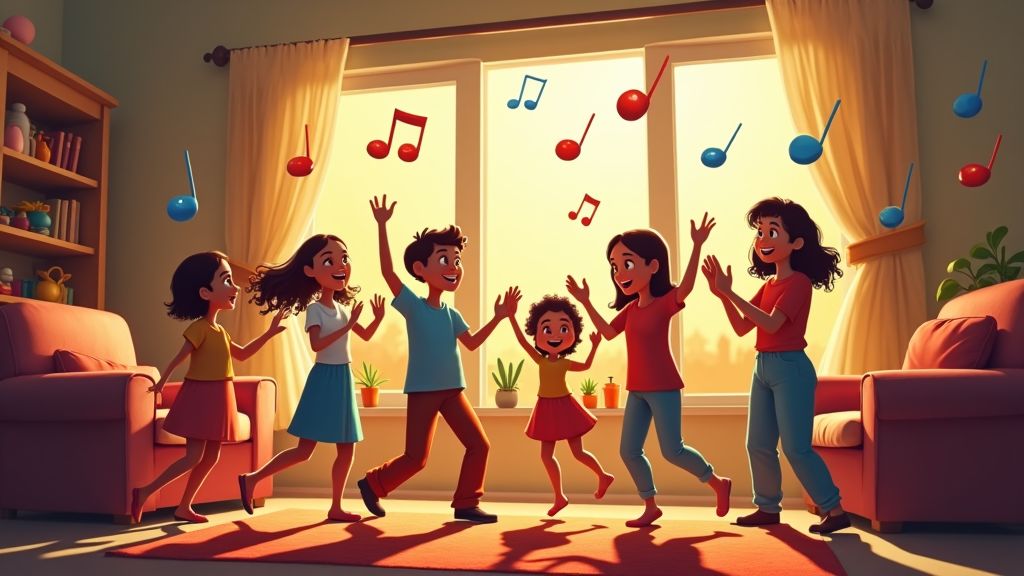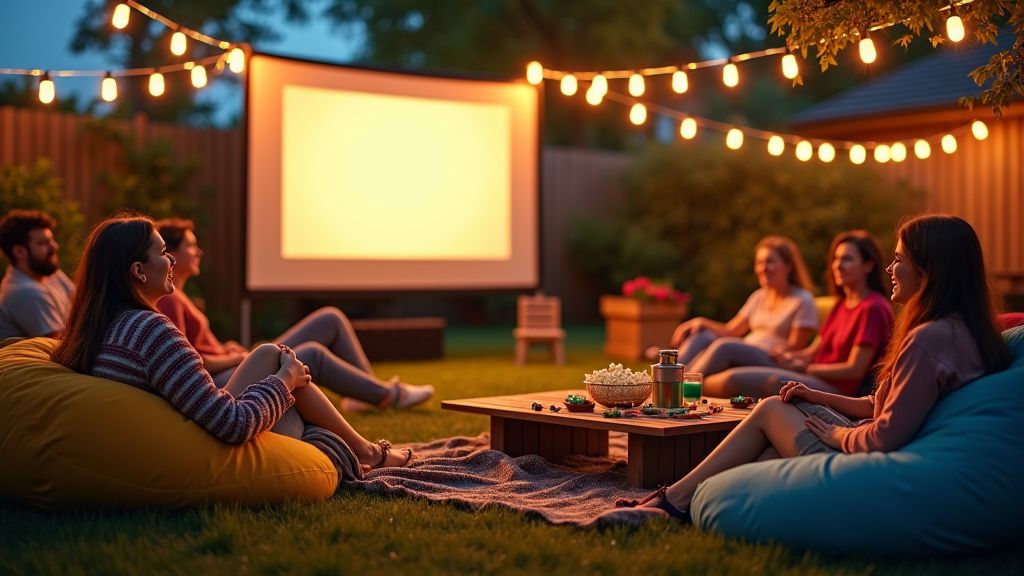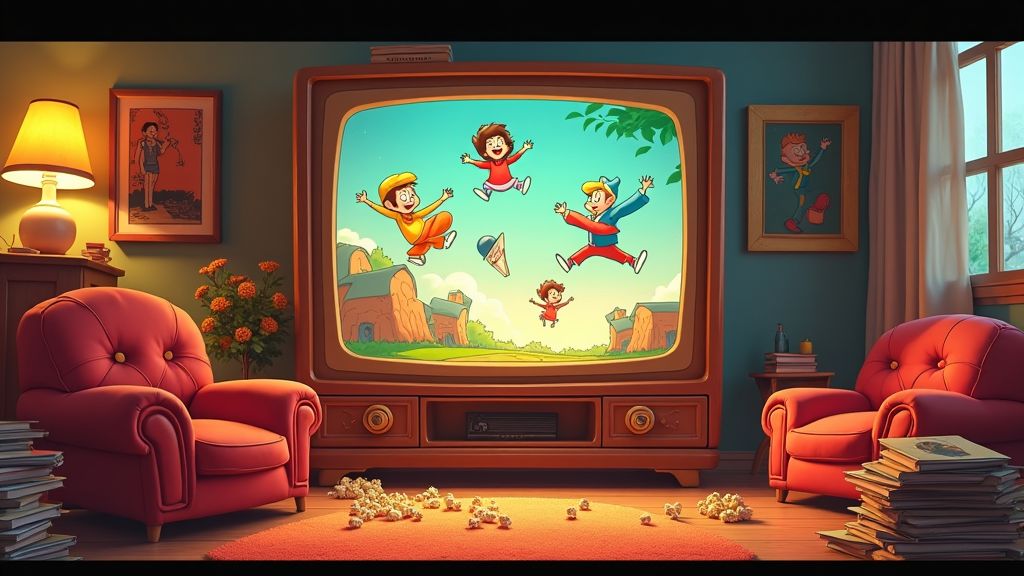Advertisement
Lifestyle
The Benefits of Minimalism: Living with Less for More Happiness
Picture this: your morning alarm rings, and as you blink away the sleep, you’re thinking, ‘Oh boy, not another day of chaotic closets and endless clutter!’ If that’s you, frankly, you’re not alone. We all accumulate stuff, but what happens when ‘stuff’ starts to stress you out? Enter minimalism: the art of living with less and gaining so much more.
Why Minimalism?
Minimalism is not just about owning fewer things—it’s about making room for what matters. According to a study from the University of Southern California, clutter can directly lead to increased levels of the stress hormone cortisol in women. So, it’s not just about tidier spaces; it’s about healthier lives. Additionally, with so many of us juggling work, family, and personal goals, the mental and emotional toll of clutter can become overwhelming. Piles of paperwork on the kitchen table, an overflowing closet, or a garage packed to the brim can contribute to a sense of anxiety that stays with you throughout the day. When you adopt a minimalist mindset, you’re effectively telling yourself that your home, mind, and daily routines deserve to be free from unnecessary burdens.
Another compelling reason to embrace minimalism lies in the rapid consumer culture that has exploded over the past few decades. We’re constantly bombarded by advertisements and social media influencers showcasing trendy gadgets, stylish outfits, and the newest must-have items. While buying new things can offer a momentary thrill, it can also trigger a cycle of always wanting more. Minimalism asks us to pause, reflect, and ask: “Do I really need this? Will this item add lasting value to my life?” Such questions can rewire our habitual impulses, leading to more intentional living and freeing up mental space to focus on deeper, more meaningful pursuits.
Unclutter Your Environment
Think about it: how many times have you opened a drawer only to find it full of things you forgot you even owned? Start your minimalist journey by auditing your living spaces. One of the simplest ways to do this is through micro-decluttering sessions:
- Start Small: Tackle a single drawer or shelf, and set a timer for just 15 minutes. You’d be amazed by how much you can achieve in a little time. This approach reduces the feeling of being overwhelmed, making it more likely you’ll stay motivated.
- The “Joy Rule”: Ask yourself if each item sparks joy à la Marie Kondo. If it doesn’t, maybe it’s time to let it go. The power of this question isn’t limited to clothes; it can extend to kitchen utensils, decorative items, and even digital files.
- One-in-One-out Policy: For every new item you bring in, let go of an old one. This keeps clutter at bay. Over time, this rule can become second nature, preventing you from accumulating too many possessions.
Adopting these strategies not only frees up physical space but mental space as well. Less clutter means less stress and more focus on things that truly matter. As the clutter clears, you’ll find yourself with a newfound sense of peace whenever you walk into a room—no more tripping over random boxes or rummaging through piles of clothes when you’re in a hurry. This psychological relief can translate into clearer thinking, better sleep, and more productivity overall.
Additionally, consider ways to organize what’s left after you declutter. Using transparent storage boxes, labels, or even a simple filing system for paperwork can help keep minimalism sustainable. Instead of shoving items back into closets haphazardly, an intentional approach to organizing can prevent the slow creep of clutter from returning. Some minimalists swear by the “everything has a home” rule, ensuring that every item you decide to keep is assigned a specific spot. This can be especially helpful for busy families, where multiple people may be sharing and moving items around.
Economical Benefits of Minimal Living
Living minimally can also be a boon to your wallet. By buying less, you naturally save more. Wouldn’t it be nice to redirect that money toward experiences rather than objects? Imagine setting aside funds for a long-awaited vacation, or perhaps investing in a new skill or hobby that enriches your life. When you’re no longer bogged down by impulse purchases and endless shopping sprees, you can start looking at your financial goals with clearer vision.
- Avoid Impulse Buys: Create a 30-day list. If you want to buy something, wait 30 days. If you still want it, go ahead. This pause often reveals whether the desire for an item is genuine or merely fleeting.
- Invest in Quality: A well-made jacket may be more expensive upfront but will outlast multiple cheaper ones, saving you money over time. Quality items also tend to age better and remain more versatile, making it easier to adopt a simplified wardrobe.
By embracing minimalism in your spending habits, you’ll also become more conscientious about your overall finances. You might notice you no longer feel the need to subscribe to every streaming service or buy the latest smartphone the moment it’s released. In turn, financial stress can ease, giving you greater flexibility to pursue passions or even reduce working hours, if that aligns with your goals. It’s about reclaiming power over your own economic life, rather than letting consumer trends dictate your budget.
Nurturing Relationships
Believe it or not, minimalism positively impacts relationships. When you’re not bogged down by a constant quest for more stuff, you have more time and energy to spend on loved ones. Instead of sifting through piles of clothes or reorganizing your clutter, you can invest those hours in more meaningful connections—like cooking a meal together, playing board games, or sharing stories and laughs. Over time, these small, shared moments accumulate into deeper bonds and cherished memories.
“Minimalism helps us intentionally promote the things we most value by removing everything that distracts us from it.” – Joshua Becker, minimalism advocate.
Consider how you might nurture emotional connections by prioritizing people over possessions. For instance, instead of buying gifts, invest time by planning a day out with family or a picnic with friends. Gifts can be wonderful tokens of affection, but experiences often create lasting memories that material items can’t compete with. A weekend camping trip or a simple hike can bring people together in ways that gadgets and luxury products seldom do.
Minimalism can also reduce conflicts that sometimes arise over shared space. Couples, roommates, and family members may experience tension when one person’s clutter habits clash with another’s desire for order. By adopting minimalist principles, households can establish clear guidelines for what stays and what goes, preventing the slow buildup of arguments and resentment. In this way, minimalism acts as a catalyst for better communication, cooperation, and compromise.
Addressing Common Concerns
The number one question people ask about minimalism is, “Do I have to get rid of everything?” Rest easy; minimalism isn’t a contest of who has the least. It’s about balancing what you own with what you value. Another worry is, “Will life be boring without stuff?” On the contrary! With a minimalist lifestyle, your focus shifts to intangible experiences—adventures, learning new skills, or simply savoring a quiet cup of coffee in the morning.
In fact, many minimalists find they unlock newfound creativity and personal growth once they stop fixating on material acquisitions. You might discover a passion for painting, writing, or community volunteering when you’re not preoccupied with acquiring the next big thing. Minimalism creates space for self-discovery; it lets you put aside the noise of a hyper-consumerist culture and tune into the things that genuinely fulfill you.
Some may also worry about how guests or family members will perceive a minimalist living space. Will it appear barren or unwelcoming? A well-curated space, free of clutter, can actually feel more inviting. Think of a sleek, open-concept living room with a few well-placed pieces of art and comfortable seating—people are more likely to sit, relax, and enjoy the conversation when they’re not distracted by overwhelming visual chaos. Minimalism doesn’t mean denying yourself aesthetics or comfort; it means choosing them deliberately.
Transformative Lifestyle Changes
Adopting a minimalist mindset can trickle into other areas of your life. Minimalism encourages mindfulness and intentionality in your choices, which can foster a greater sense of purpose and happiness. When you eliminate what no longer serves you, what remains is often what truly aligns with your values. This alignment has a powerful ripple effect on your daily habits, relationships, and long-term goals.
- Mindful Consumption: Whether it’s media, food, or time, consume with awareness and purpose. Scrolling through social media aimlessly or stocking your pantry with junk foods can be mindless habits that add mental and physical weight to your life. Minimalism asks you to be conscious and selective, ensuring that what you take in nourishes you.
- Digital Decluttering: Clean out your email inbox and reduce social media usage to make room for what really matters. Unfollow accounts that don’t inspire or enrich you, and organize important files into clear folders. This can also extend to your smartphone, where too many apps can become a source of distraction.
Beyond the obvious benefits, these lifestyle changes can significantly enhance your mental health. When you’re spending less time glued to a screen, you can focus more on hobbies, face-to-face interactions, and self-care routines. You might find yourself picking up that book you’ve always wanted to read or joining a local fitness group. The idea is to fill your life with quality experiences that contribute to your emotional and physical well-being. Minimalism, in this sense, becomes a holistic approach to living, one that touches every corner of your daily experience.
An often-overlooked aspect of minimalism is self-reflection. In the process of decluttering your space, you’re inevitably forced to confront questions about what you truly value. Do you hang on to sentimental items because of guilt or genuine attachment? Are you purchasing certain brand-name products for status rather than utility? The answers can be enlightening, offering a gateway to deeper personal insights. Some people keep a decluttering journal to track their thoughts and emotions as they let go of various items. This self-awareness can be transformative, leading to improved self-esteem, clarity of purpose, and a more authentic lifestyle.
Minimalism can also extend into your social circle. As you embrace a more intentional lifestyle, you may find yourself drawn to people and communities that share similar values. Whether it’s eco-conscious groups, local volunteering efforts, or hobby clubs that focus on skill-building rather than material one-upmanship, you’ll begin to see that minimalism fosters community-building. You might even inspire friends or family to consider letting go of some of their possessions, sparking broader conversations about sustainability, mental health, and financial freedom.
On a larger societal level, minimalism aligns with efforts to reduce environmental impact. Less consumption means fewer items ending up in landfills and a reduced carbon footprint associated with manufacturing, shipping, and packaging. When you buy fewer items of higher quality, you not only reduce waste but often support smaller, more ethical companies. In this way, minimalism can be part of a broader ethical commitment to living in harmony with the planet.
In Summary
Engaging in minimalism isn’t about deprivation; it’s about enrichment. It’s about creating space—physical, emotional, and mental—for the things that bring real joy and fulfillment. Whether it’s decluttering a single closet or overhauling your entire home, each step you take toward minimalism is a step toward greater clarity, purpose, and well-being.
If you’re feeling inspired to start living with less, why not try out one of these tips today? Share your minimalist journey with a friend; the change often feels lighter when made together! You could even make a fun “decluttering party” out of it—invite some friends over, play good music, and tackle a small area together. By the end, you’ll not only have a tidier space but also a newfound sense of camaraderie and accomplishment.
Embracing minimalism is a lifelong process, and your approach may evolve over time. Initially, you might focus on physical possessions, but gradually you’ll notice how minimalism touches everything—from your schedule to your relationships. It can guide you in saying “no” to commitments that don’t align with your priorities, opening up more time for activities that fuel your passion. It’s a conscious shift from a life of “more, more, more” to one that values depth and meaning above all else.
Finally, remember that minimalism is deeply personal. One person’s “must-have” could be another’s “I’ll pass.” The key is to identify what you genuinely need and cherish, and eliminate what no longer serves you. The freedom found in this lifestyle isn’t about conforming to a rigid set of rules—it’s about discovering what works for you, your home, and the people you care about. Minimalism can be your catalyst for richer experiences, better financial health, healthier relationships, and a more authentic connection with yourself and the world around you.
“Take the first step toward a brighter, clutter-free future by applying these tips today!” Whether that means creating your first decluttering checklist or designating a specific box for donations, every bit counts. The journey toward minimalism is, at its heart, about learning to find joy in simplicity and purpose in intentional living.
Sources:
- https://www.usc.edu
- https://www.becomingminimalist.com

